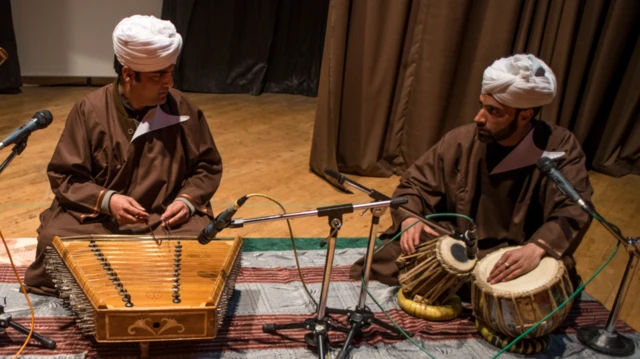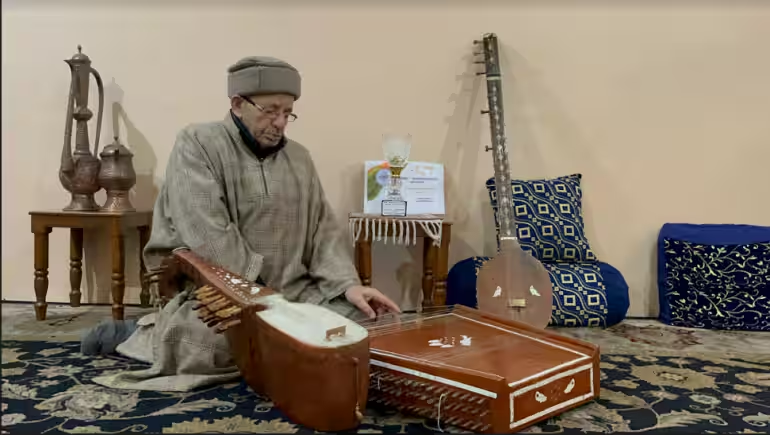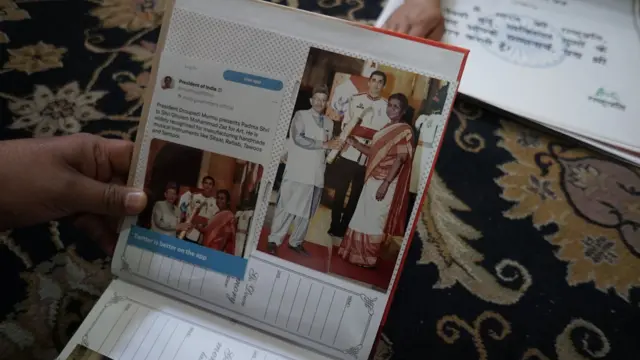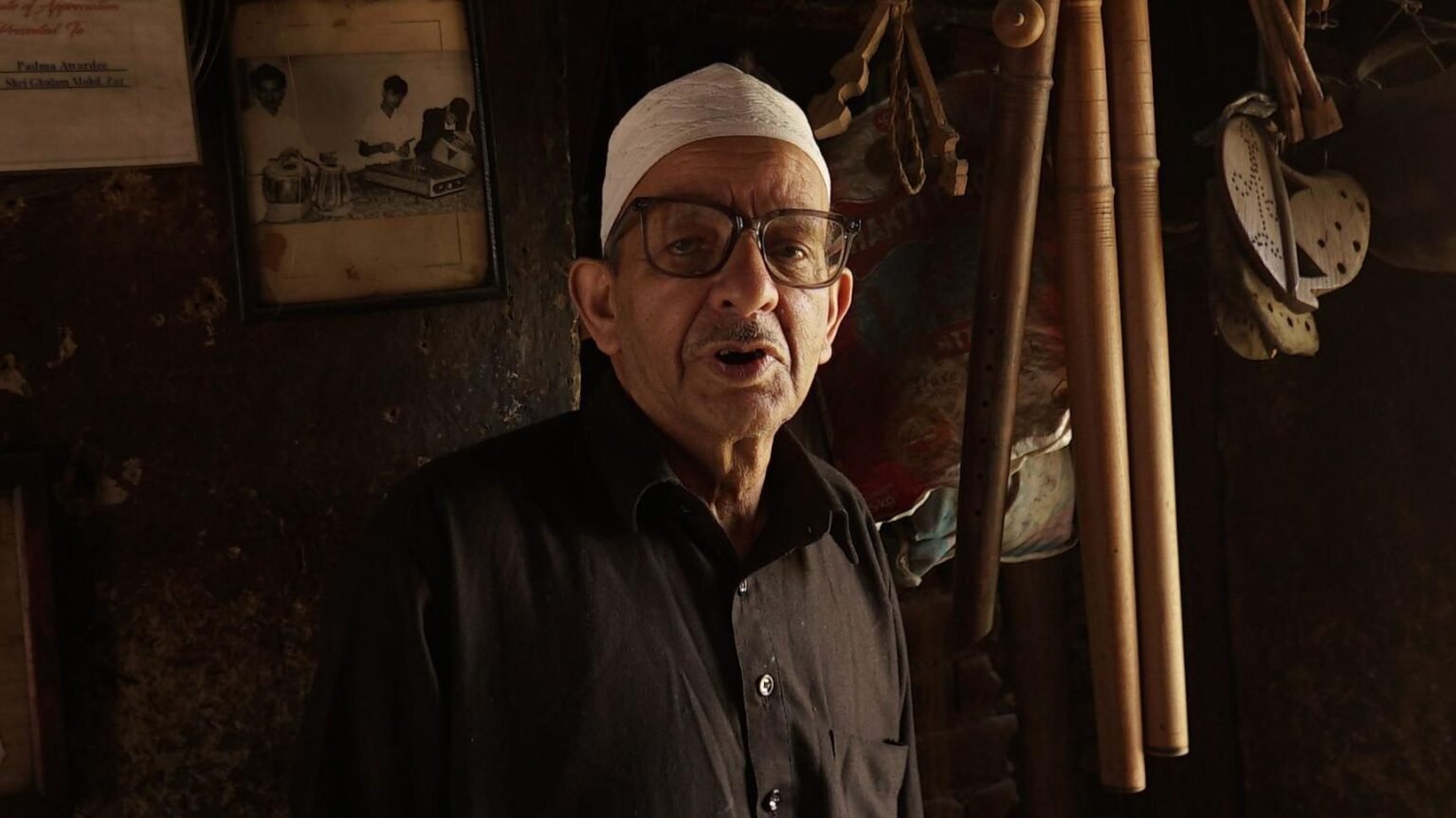The Life of a Kashmiri Santoor Artisan in Srinagar
Tucked away in the historic lanes of Srinagar, a modest workshop quietly shelters one of Kashmir’s oldest living art forms. Here, Ghulam Mohammed Zaz, a master craftsman and widely regarded as the last Kashmiri santoor artisan, keeps the legacy of handcrafted music alive.

For centuries, the santoor — a trapezoid-shaped string instrument — has resonated through Kashmiri culture. Known for its shimmering, bell-like tone, it has been a vital part of Sufi, folk, and classical traditions in the region.
A Kashmiri Santoor Artisan’s Seven-Generation Legacy
Zaz descends from a family of revered craftsmen who have shaped instruments like the santoor, rabab, and sarangi for over seven generations. His workshop, filled with walnut wood and hand tools, reflects a deep connection to the past.
“My ancestors were summoned by local kings to build instruments that healed hearts,” he says with quiet pride.
Despite this rich history, Zaz now stands alone. With rising popularity of machine-made instruments and modern music trends, the demand for hand-crafted santoors has drastically declined.
Kashmiri Santoor Artisan and the Soul of Kashmir’s Music
Believed to have originated in Persia, the santoor arrived in Kashmir centuries ago, gradually becoming central to Sufiana Mausiqi. Later, it gained prominence in Indian classical music, thanks to legends like Pandit Shiv Kumar Sharma and Bhajan Sopori.
Zaz’s instruments have been played by these very icons, further embedding his craft in the musical history of South Asia.
The Art of Crafting a Santoor
Creating a santoor is an intricate process requiring months of labor, deep musical intuition, and a craftsman’s patience. From carefully choosing seasoned walnut wood to fitting 100+ strings and tuning each for optimal sound, Zaz treats every step as a sacred ritual.

“There are no shortcuts here,” he explains. “You must listen — to the wood, to the air, and to the hands that will bring it to life.”
An Artisan Honoured, But Alone
In 2022, Ghulam Mohammed Zaz was awarded the Padma Shri, one of India’s highest civilian honors, for his unmatched contribution to traditional instrument making. Despite national recognition, his deeper wish remains unmet — finding an apprentice who shares his love for the santoor, not for fame, but for the music.
Preserving Kashmir’s Musical Heritage
While social media and online features have brought visibility to Zaz’s work, he remains skeptical about the long-term impact. His daughters have pursued different careers, and institutional support has fallen short of creating a sustainable future for his craft.
“I don’t want charity or celebration,” he says. “I want someone who will carry this art with the same reverence.”
A Silent Workshop Full of Sound
Now in his eighties, Zaz continues to work slowly and quietly, often beside an unfinished santoor. His workshop, filled with the scent of aged wood and the soft echoes of memory, remains a testament to a culture at risk of disappearing. Kashmiri santoor artisan.

“This is not just an instrument,” he reflects. “It’s a language. A way to speak to the soul.”




